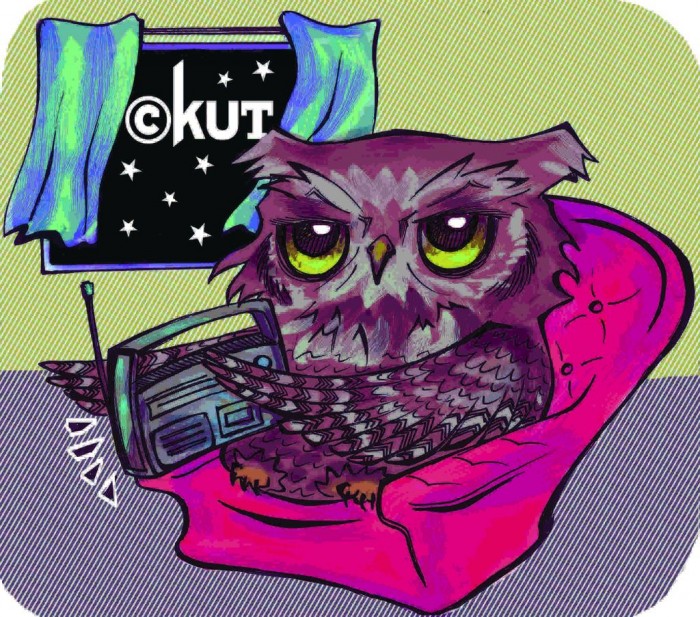CKUT 90.3 FM has provided McGill students and Montreal residents with community news, alternative music, and culture shows since 1987. Like any radio station, the majority of its headline programs occur during the day; however, CKUT’s programming does not stop when the day ends and a large portion of the radio station’s programming occurs when the majority of its listeners are asleep. “William Shatner’s Whiskey Tears,” informally referred to as “Whisky Tears” by its hosts, is one of these programs. The music-dominated show is held from 4 a.m. to 6 a.m. on Thursday mornings. It has rotating hosts selected on a volunteer basis to choose their own music and spoken content each week.
While most of CKUT’s programs are made up of a mix of efforts from McGill students and non-student members of the local community, "Whiskey Tears" is unique in that it is almost exclusively hosted by McGill students.
With any media programming that airs when the majority of regular listeners are asleep, there is the question of where the program gets its audience. The hosts of the program themselves can only guess as to whom their music and voices reach.
“It’s so hard to know how many people are listening, or if anyone is,” Celia Robinovitch, U1 Social Work and volunteer host, said. “The world just seems dead at that time [….] I think that there’s something about doing a show at a late hour that makes you feel super anonymous, and it actually does make you feel under the radar.”
The anonymity of nighttime radio is a central part of the intrigue for its hosts.
“There’s something fun about listening to the radio really early in the morning,” Pillai said. “It’s like one of those things that feels good but you can’t really explain [it]. Like taking a cab to the airport at three in the morning, it feels really cool to be out and see no one around. It’s sort of the same experience in going to the radio station and seeing no one there […] you are in a space which is entirely yours.”
Some of the hosts have their own speculations as to who their main listener demographic is.
“I think it’s mostly people who work nights,” Robinovitch said. “Once, I got a call at 4:45 [a.m.], the first time I did "Whiskey Tears" from someone saying [she/he] liked the music. [This listener was] like, ‘Yeah, I’m driving to work, and this song’s really good, what’s it called?’ and I was like ‘[Wow], does this happen every time?’”
"Whiskey Tears" is also not a nighttime program all across the world. Depending on the time zone, international audiences are able to tune in to the show live during the day.
“I’m from the [United Kingdom], so they’re five hours ahead,” Xavier Pillai, U3 History student and volunteer host, said. “At nine in the morning, my friends are all waking up, and I’m like ‘I’m on the radio!’ and they’re like ‘Oh cool, I’ll listen in on my way to school.’”
The unconventional timing of "Whiskey Tears" allows the hosts more freedom and control than most other CKUT programming. CKUT typically follows a mandate in which a maximum 10 per cent of songs played can come from top-40 hit lists from any point in history, and following Canadian radio regulations, at least 35 per cent of songs must be of Canadian origin. While "Whiskey Tears" hosts aim to follow CKUT’s standards, the nature of the program allows them more freedom from these rules.
“There’s a certain element of it that you know your show is from four to six a.m.,” Robinovitch said. “So you’re like ‘Okay, let’s go for the weird ambient noise.’ It gives you a sense of huge liberty to be like ‘I’m going to play some weird video game music remix’ [….]”
Weekly volunteers assigned to host "Whiskey Tears" have a lot of freedom in deciding not only which tracks get played, but how to go about playing them. While some hosts prefer to choose their songs in advance and arrange them into a playlist, others enjoy the spontaneity of playing tracks one by one while live on the air.
Regardless of presentation style, all hosts agree that having the power to choose and showcase music to an audience can be nerve-wracking, though this improves with time and experience.
Ultimately, the feeling of control over the spread of music that results from hosting a radio show is well worth the nerves and debate over listenership that come with it.
“It just is really validating I think,” Robinovitch said. “It’s also fun to put together a mix if you’re someone who’s really into music [….] When you’re someone who makes playlists just for fun […] it’s [cool] to feel like music that you chose is getting put out there.”
"William Shatner’s Whiskey Tears" airs live from four to six a.m. on Thursday mornings on 90.3 FM and online here. To listen to the show after it’s aired, check out CKUT’s programming grid here.








